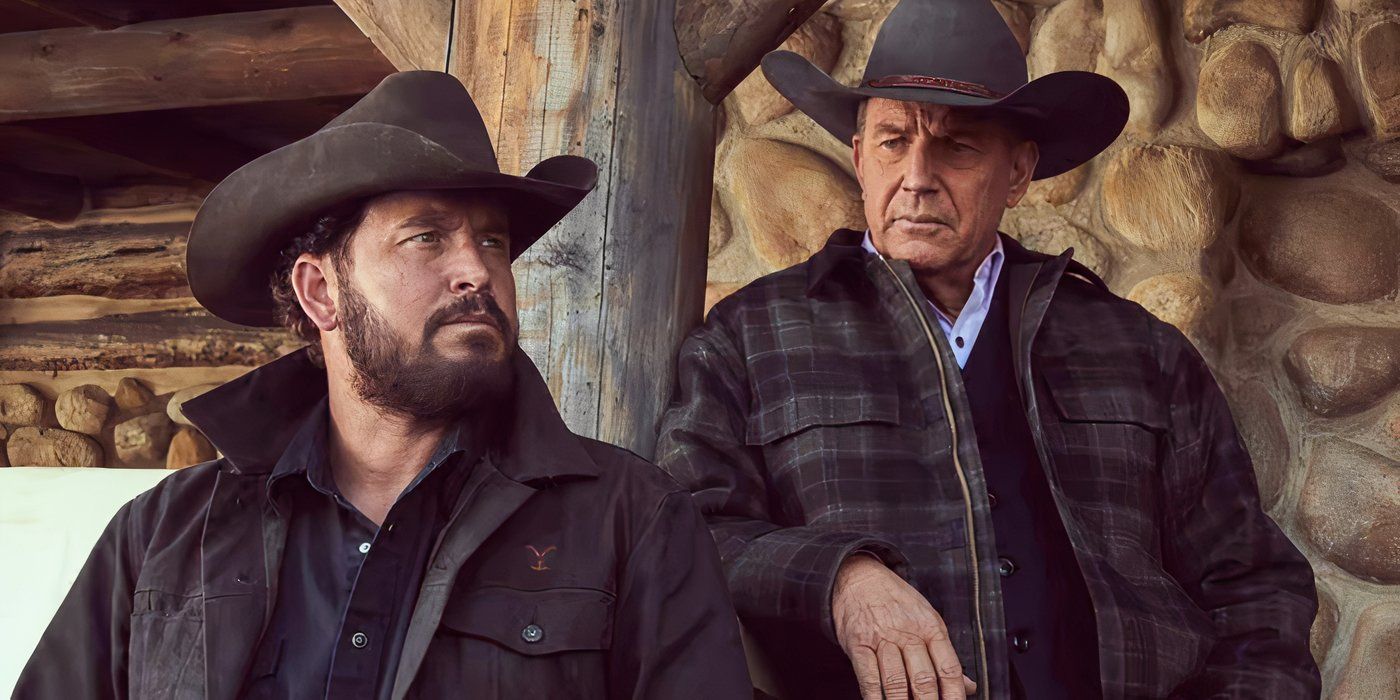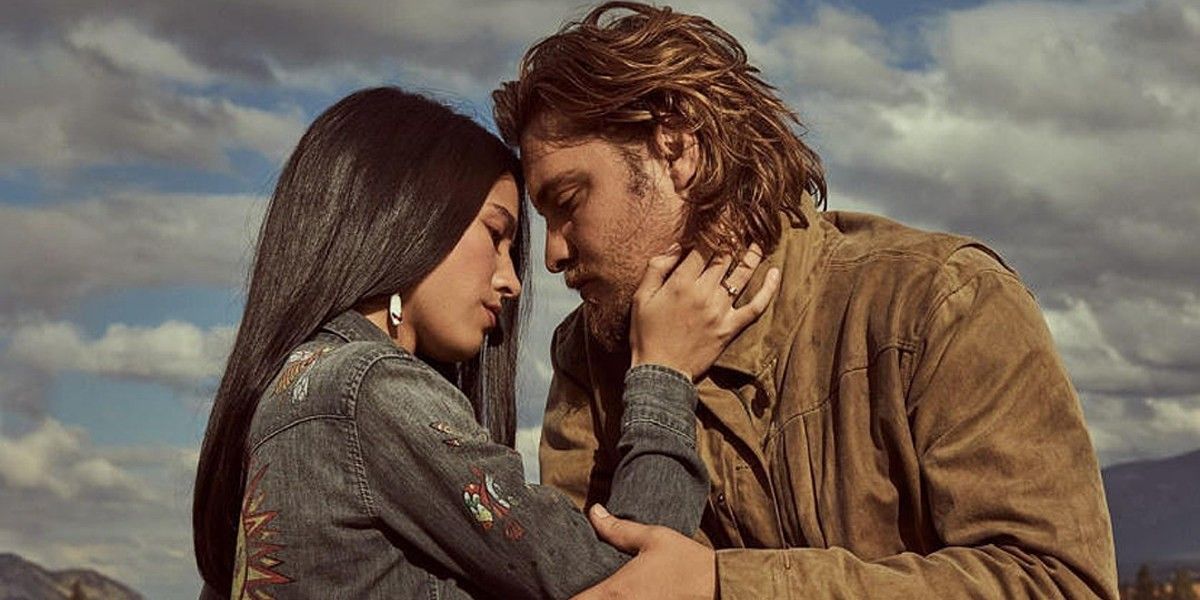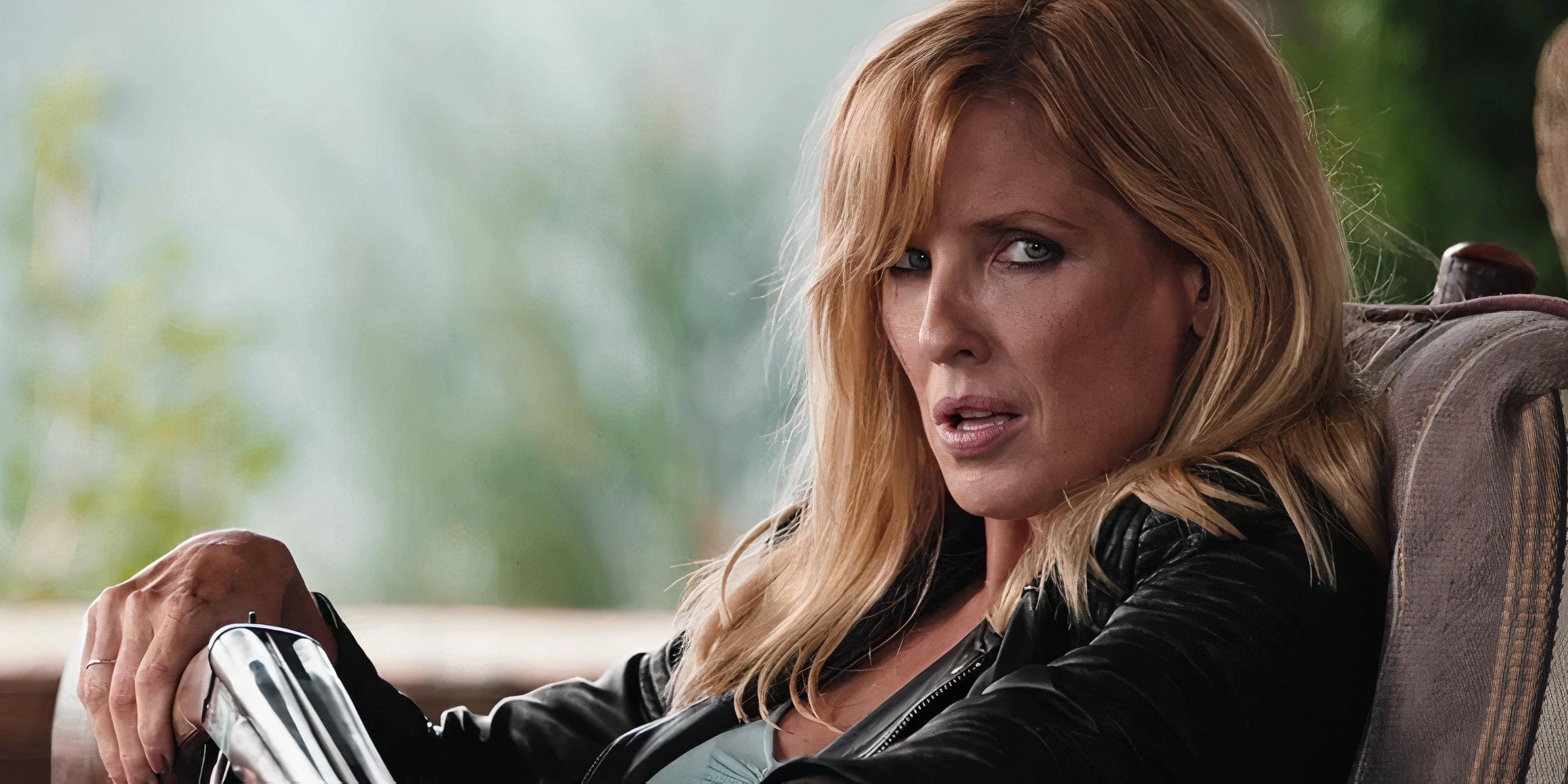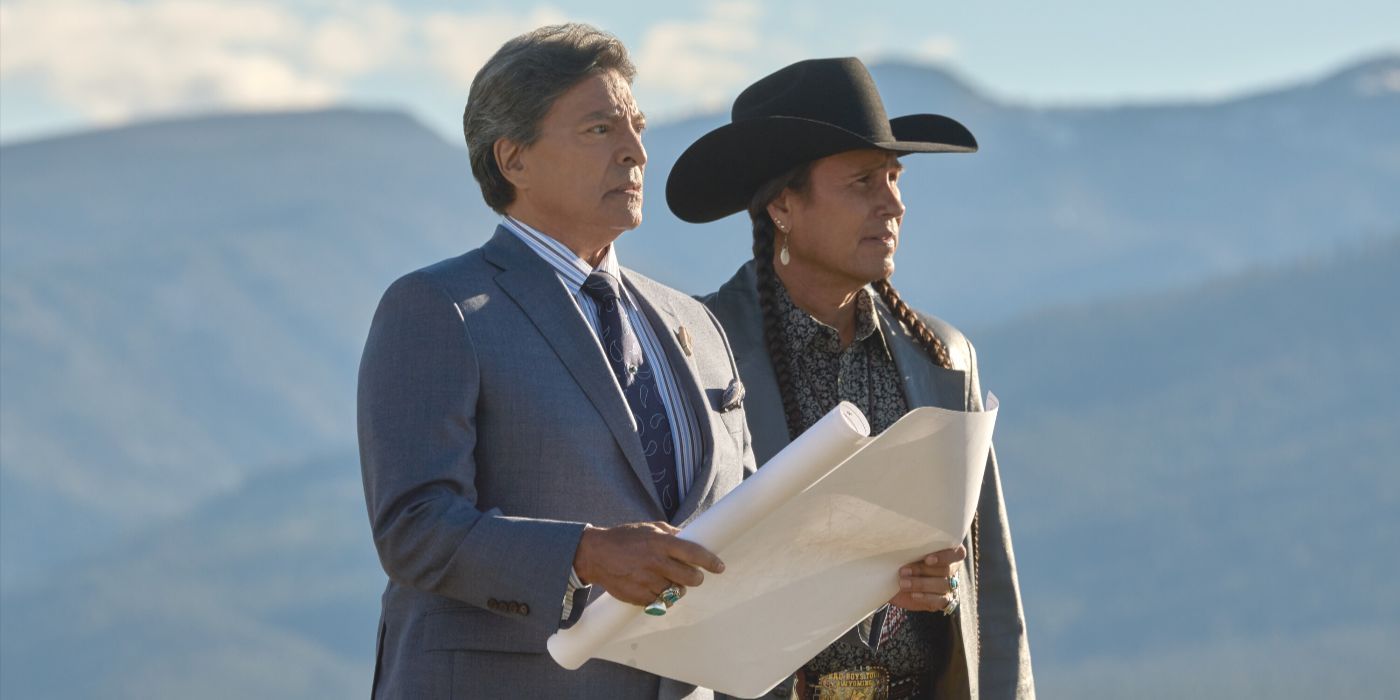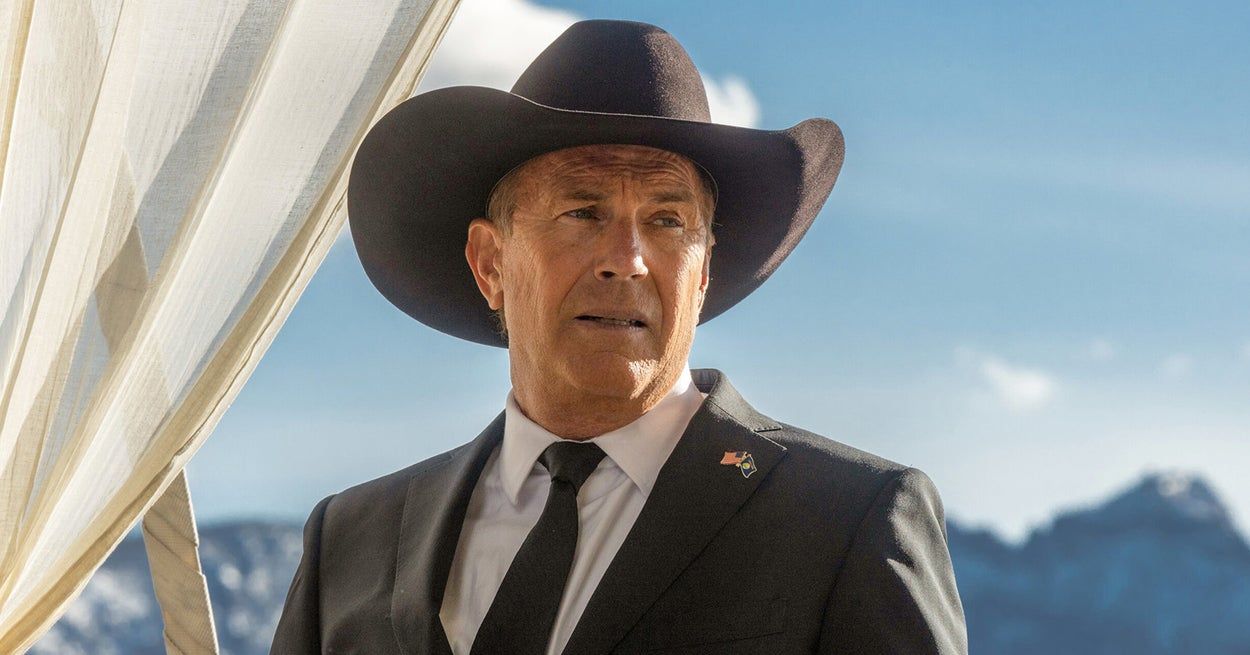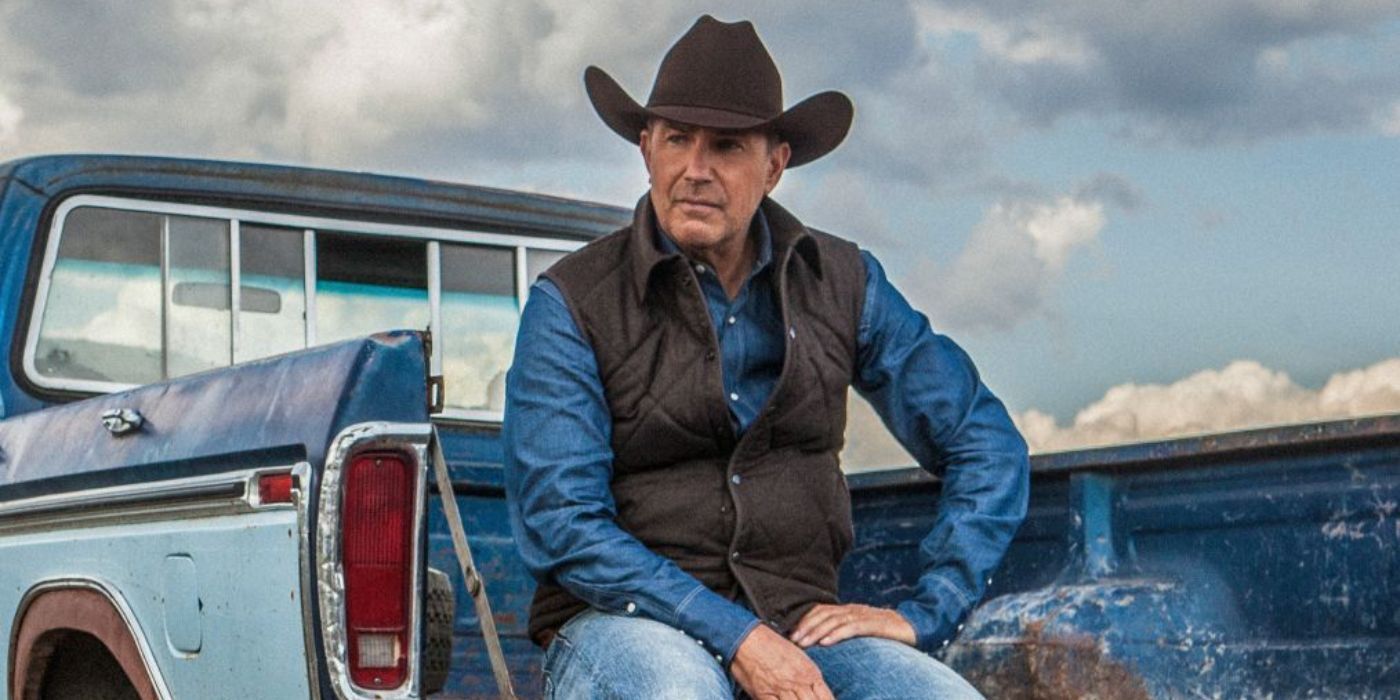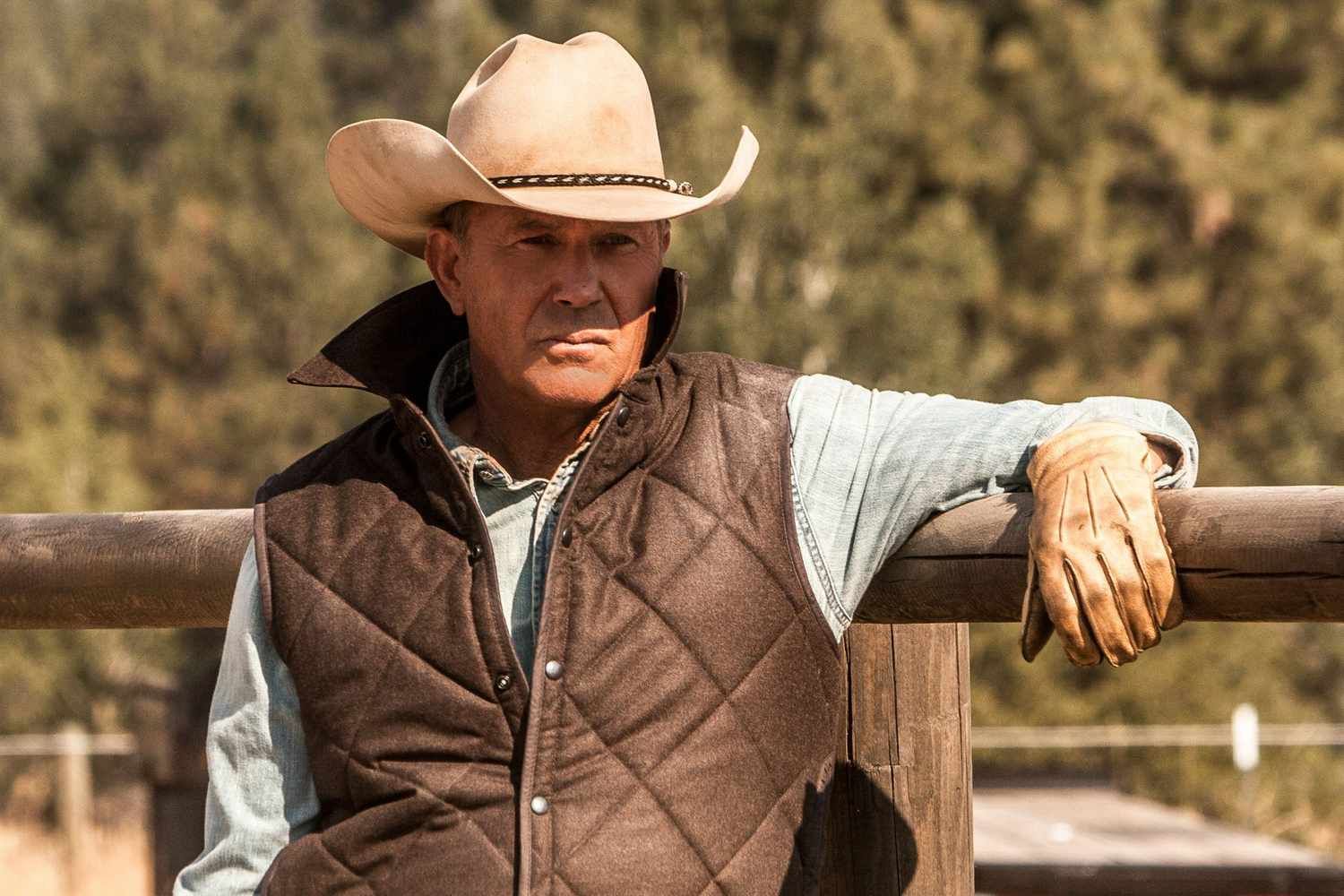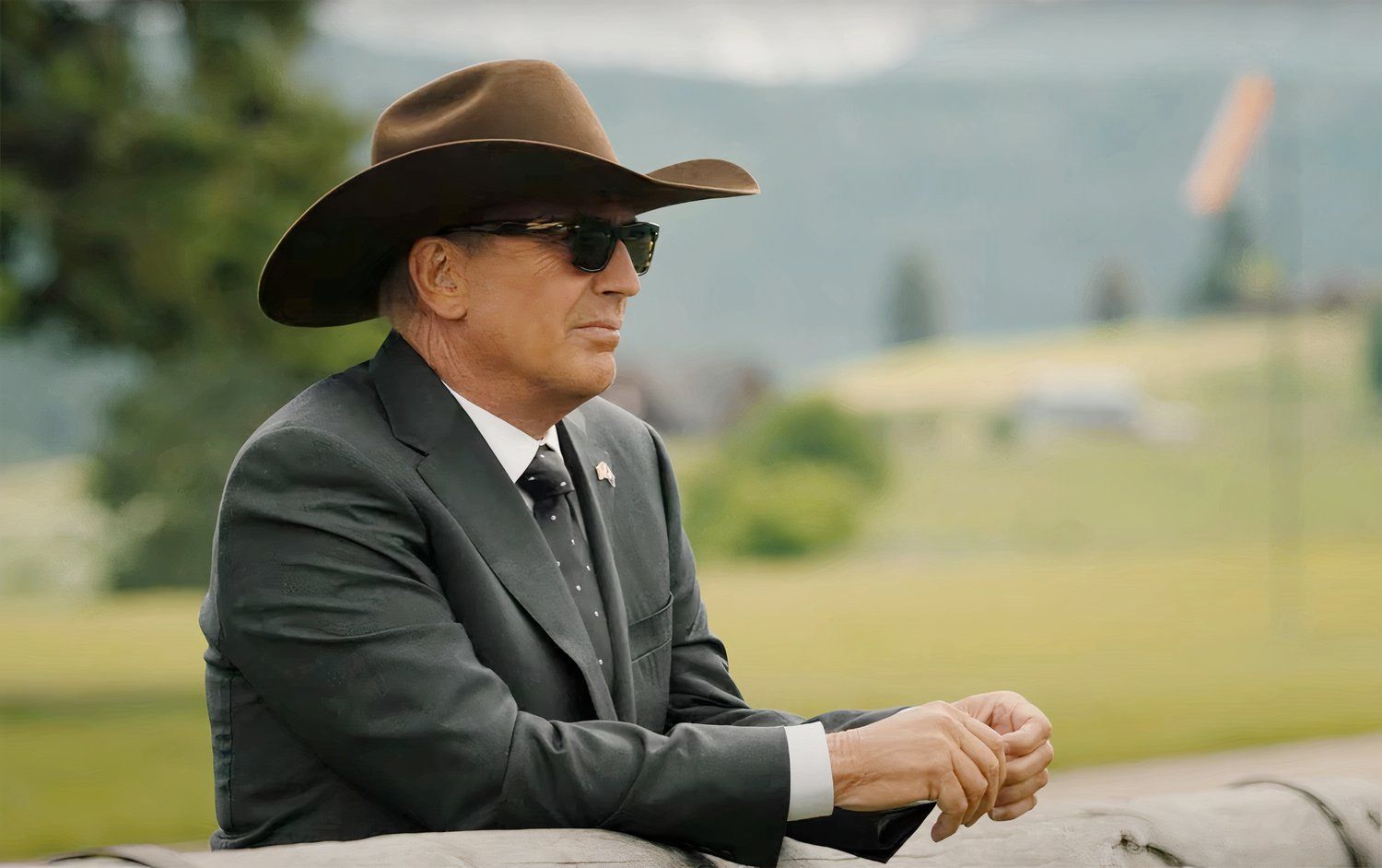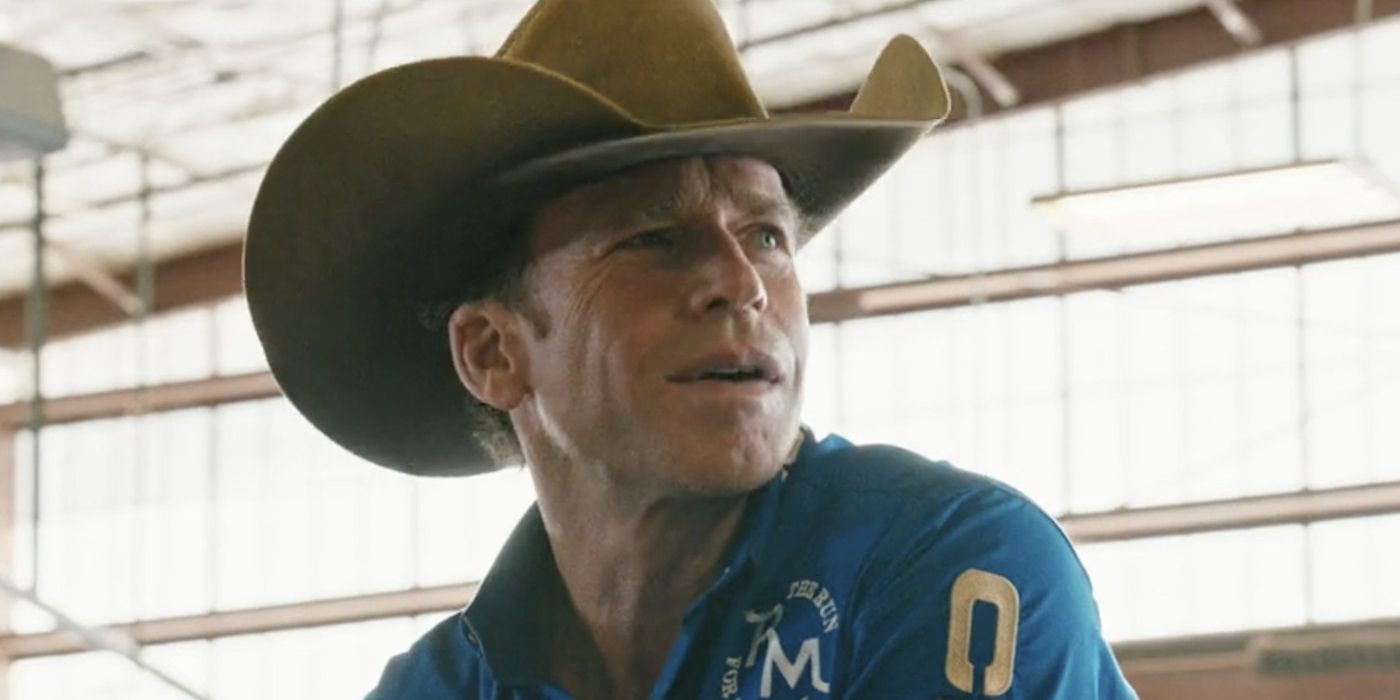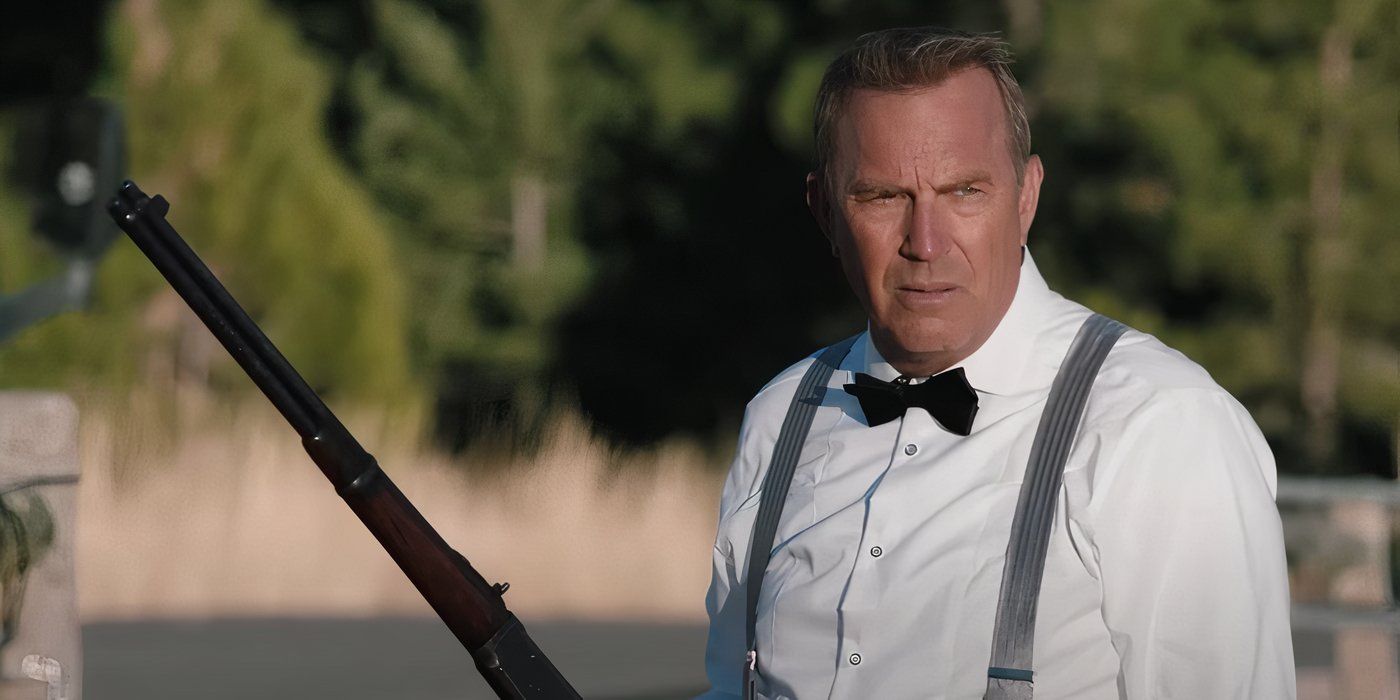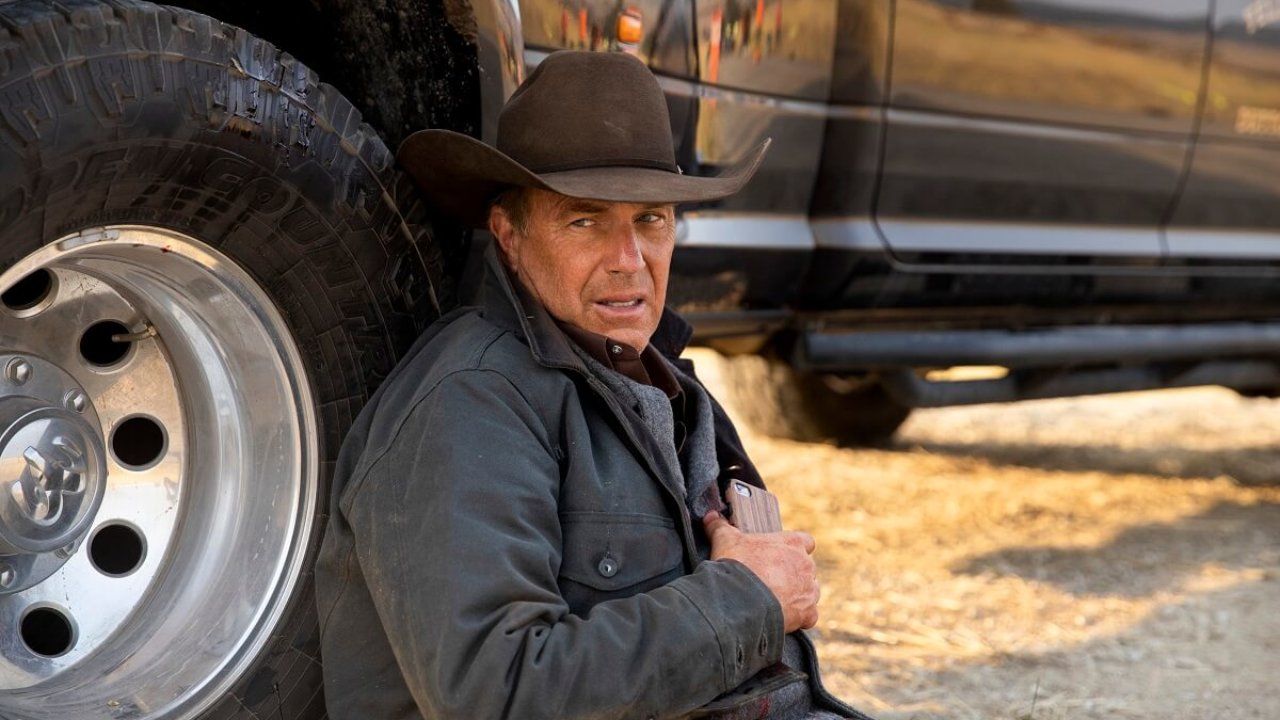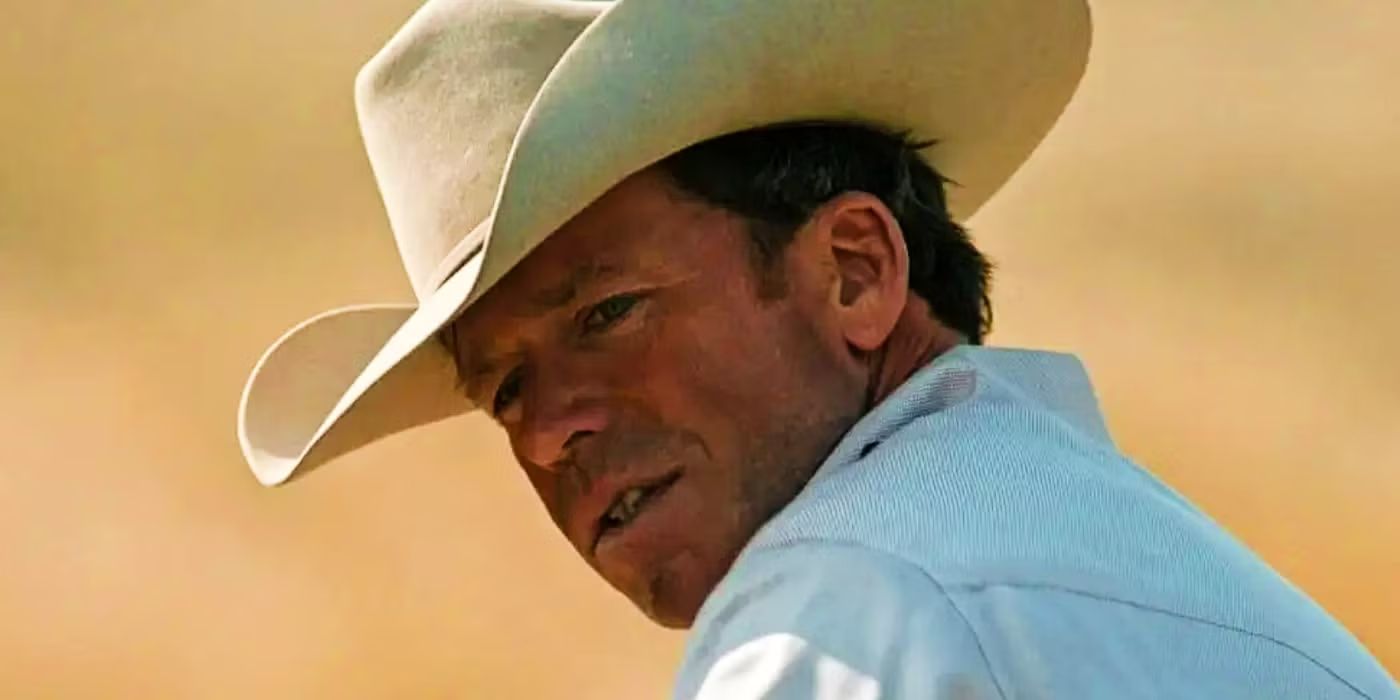
In Costner’s eyes, John was a patriarch who was fiercely protective of his land and legacy and the character had started to cross moral lines Costner was not comfortable with. Yet, Sheridan’s vision for Yellowstone has always been crystal clear. The power struggles, blood feuds, and moral compromise were never meant to be simple plot twists — they were the entire point. Sheridan’s vision wasn’t slowly getting darker, the darkness was embedded in the series’ original DNA. If Costner truly took issue with Dutton getting blood on his hands, then perhaps the real problem wasn’t Sheridan’s writing, but Costner’s expectations.
Yellowstone Was Taylor Sheridan’s Ode to Mario Puza’s Mafia Epic
Taylor Sheridan Was Very Clear With the Series’ Original Pitch
Sheridan first presented this concept to HBO, when he leaned away from Yellowstone being a feature film and towards it becoming a more serialized story. While the network was initially interested, it ended up passing on the project, with executives expressing concerns that the show’s focus on “Middle America” didn’t align with HBO’s prestige TV brand image. One executive reportedly said, “It feels so Middle America. We’re HBO, we’re avant-garde, we’re trendsetters. This feels like a step backward.” This, however, didn’t stop Sheridan’s determination to get his vision made.
Sheridan shifted gears and took the project to Paramount Network, where it ultimately found a very receptive audience. The series premiered in 2018, bringing to life the complex dynamics of the Dutton family. From the very beginning, Yellowstone did not shy away from showing every character’s darker side. That’s what made the series so engaging in the first place. While the Dutton’s were at their core good people, it didn’t stop them from making questionable decisions.
Kevin Costner’s Expectations of the Role & Sheridan’s Vision Were a Recipe for Disaster
Kevin Costner Received a Best Actor in a Television Series Drama Nomination for his Yellowstone Role
Costner’s portrayal of John Dutton was met with acclaim, but as Yellowstone progressed, reports began to surface about his growing discomfort with the character’s trajectory. Specifically, Costner was uneasy with Dutton increasingly leaning more into moral ambiguity and violence. Costner believed these shifts betrayed the character’s foundational principles of family and stewardship over the land. Sheridan addressed these concerns, stating that Costner was upset during Season 2 and Sheridan’s response was a reminder of the series’ original pitch.
‘Kevin, you do remember that I told you this is essentially The Godfather on the largest ranch in Montana? Are you that surprised that the Godfather is killing people?’ – Taylor Sheridan from an Interview with SoapCentral
The course correction led to Costner receiving critical acclaim, and a Golden Globe Nomination and Win in 2023. Despite all that, Costner’s worries were unfounded. Dutton’s actions in Season 2 weren’t detours or a betrayal to who John Dutton was as a character. There were markers and signs about what kind of story Sheridan was telling from the very beginning. Even when one considers Dutton’s ultimate fate — yes, it was rushed, but it was always meant to lead to his death — it is quite an ode to The Godfather.
The Godfather Never Asked for Permission & Neither Should John Dutton
The Clash Between Sheridan and Costner Became Just as Epic as the Series
The behind-the-scenes Yellowstone drama may have appeared as gripping as the series itself, but when one zooms out, the logic behind Costner’s alleged unhappiness quickly unravels. Sheridan never sold Yellowstone as a romanticized or nostalgic ode to the American frontier. From the very beginning, he pitched it as “The Godfather in Montana” — a family legacy drama built on blood and betrayal, and every episode of Yellowstone cemented that vision.
John Dutton was never meant to be a typical Western hero. Yes, he was a man who was bound by land and family, but he was also shaped by the bloody cost of protecting and keeping them. Costner’s criticism of that moral complexity simply proved that he didn’t fully resonate or understand the entire foundation that Yellowstone was built on. While Costner’s performance enriched the series and made Dutton into an iconic TV patriarch, the logic behind his worries that Dutton was becoming too ruthless will forever make zero sense.
